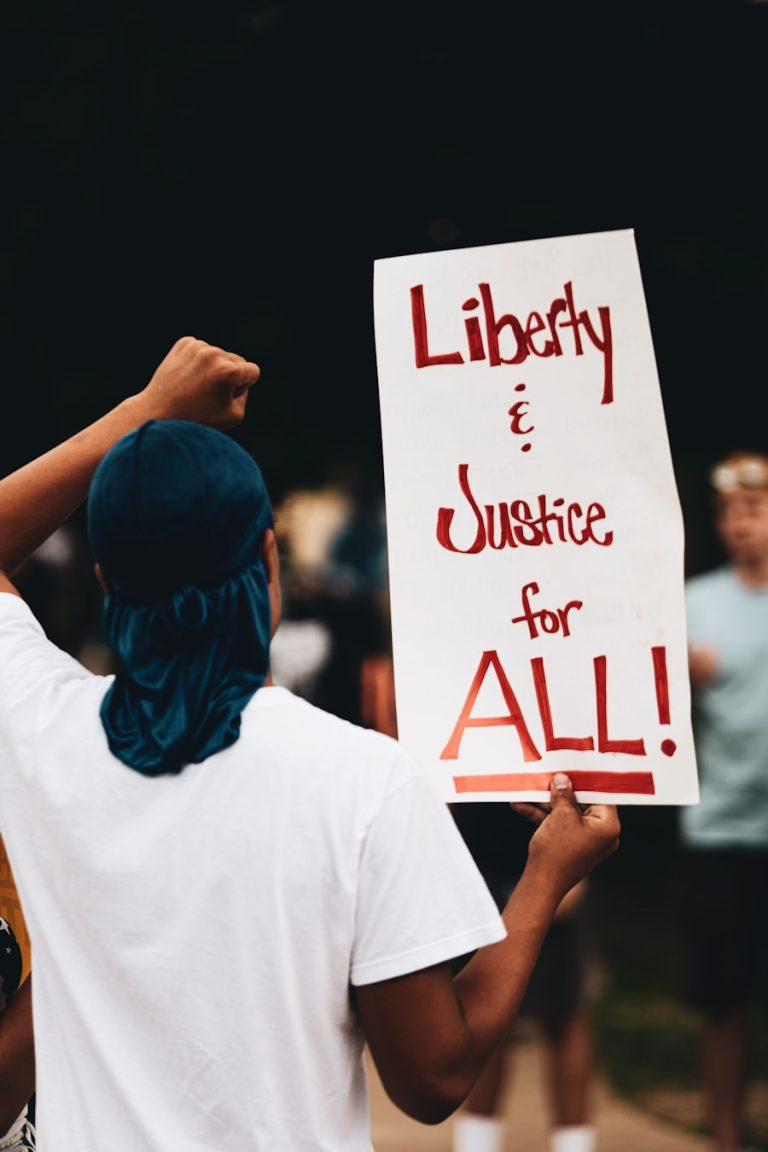
The government plays a pivotal role in the criminal justice system, serving as the primary entity responsible for maintaining law and order, enforcing laws, and administering justice. This responsibility encompasses a wide range of functions, including the creation of laws, the apprehension of offenders, the prosecution of crimes, and the rehabilitation of those who have been convicted. The government is tasked with ensuring that justice is served fairly and equitably, which involves not only punishing wrongdoers but also protecting the rights of individuals.
This dual responsibility can create tension, as the government must balance the need for public safety with the imperative to uphold civil liberties. In addition to law enforcement and judicial functions, the government also plays a significant role in shaping public policy related to crime and punishment. This includes determining sentencing guidelines, establishing parole and probation systems, and funding rehabilitation programs.
The government’s approach to criminal justice can reflect broader societal values and priorities, influencing how communities perceive crime and justice. For instance, a government that prioritizes rehabilitation over punishment may invest more in mental health services and educational programs for offenders, while a government focused on deterrence may emphasize harsher penalties and increased policing. The effectiveness of these approaches often sparks debate among policymakers, scholars, and the public.
Key Takeaways
- Government plays a crucial role in maintaining law and order, ensuring public safety, and administering justice in the criminal justice system.
- Individual rights and responsibilities are essential components of the criminal justice system, and they must be upheld and respected by all parties involved.
- Victimless crimes can have a significant impact on society, leading to issues such as overcrowded prisons and strained resources for law enforcement.
- The libertarian approach to drug policy and criminalization emphasizes personal freedom and individual responsibility, advocating for decriminalization and harm reduction strategies.
- Private institutions can play a valuable role in the criminal justice system, offering alternative approaches to rehabilitation and reintegration for offenders.
Individual Rights and Responsibilities in the Criminal Justice System
Individual rights are a cornerstone of the criminal justice system, ensuring that every person is treated fairly and justly under the law. These rights are enshrined in various legal frameworks, including constitutional protections such as the right to due process, the right to a fair trial, and protection against self-incrimination. These rights serve as safeguards against potential abuses of power by the state, ensuring that individuals are not unjustly punished or deprived of their freedoms without proper legal procedures.
However, with rights come responsibilities. Individuals within the criminal justice system are expected to adhere to laws and regulations while also respecting the rights of others.
This includes the responsibility to report crimes, cooperate with law enforcement during investigations, and participate in legal proceedings when called upon. The interplay between rights and responsibilities is crucial; while individuals are entitled to protections under the law, they must also recognize their role in upholding societal norms and contributing to community safety. This balance is essential for fostering a sense of accountability and mutual respect within society.
The Impact of Victimless Crimes on Society

Victimless crimes, such as drug use, gambling, and consensual sex work, present a complex challenge within the criminal justice system. These offenses are characterized by the absence of a direct victim; rather, they involve consensual activities that do not cause harm to others in a traditional sense. The criminalization of such behaviors raises significant questions about personal freedom and societal norms.
Critics argue that laws against victimless crimes infringe upon individual liberties and disproportionately affect marginalized communities, often leading to unnecessary incarceration and social stigma. The societal impact of victimless crimes extends beyond individual cases; it influences public perception of crime and justice as a whole. For instance, the enforcement of drug laws has led to significant social consequences, including the over-policing of certain neighborhoods and the perpetuation of cycles of poverty and disenfranchisement.
Furthermore, resources allocated to combat victimless crimes could arguably be better spent addressing more pressing issues such as violent crime or public health crises. The debate surrounding victimless crimes often centers on whether society should prioritize personal autonomy over paternalistic legal frameworks that seek to regulate behavior deemed undesirable.
The Libertarian Approach to Drug Policy and Criminalization
| Aspect | Metrics |
|---|---|
| Drug Policy | Decriminalization of drug possession |
| Law Enforcement | Focus on violent crimes rather than drug offenses |
| Individual Rights | Respect for personal freedom and autonomy |
| Public Health | Emphasis on harm reduction and treatment over punishment |
Libertarians advocate for a radical rethinking of drug policy, arguing for the decriminalization or legalization of drugs as a means to enhance personal freedom and reduce government overreach. From this perspective, individuals should have the autonomy to make choices about their own bodies without interference from the state. The libertarian approach posits that criminalizing drug use not only infringes on personal liberties but also leads to a host of negative societal consequences, including increased incarceration rates, strained law enforcement resources, and the perpetuation of black markets.
In practice, libertarians argue that decriminalization would allow for more effective regulation of drugs, similar to how alcohol is managed in contemporary society. By treating drug use as a public health issue rather than a criminal one, resources could be redirected toward education, prevention, and treatment programs that address addiction without resorting to punitive measures. Countries like Portugal have implemented such policies with notable success; after decriminalizing all drugs in 2001, Portugal saw significant decreases in drug-related deaths and HIV infection rates.
This libertarian perspective emphasizes that personal responsibility should guide individual choices regarding drug use rather than coercive state intervention.
The Role of Private Institutions in Criminal Justice
Private institutions have increasingly become involved in various aspects of the criminal justice system, from private prisons to rehabilitation programs operated by non-profit organizations. Proponents argue that privatization can lead to increased efficiency and innovation within the system. For example, private prisons often claim to operate at lower costs than their public counterparts while providing better services due to competition-driven incentives.
However, this involvement raises critical ethical questions about profit motives in an area traditionally governed by public interest. The reliance on private institutions can lead to significant disparities in how justice is administered.
Additionally, there is concern that profit-driven motives could lead to lobbying for harsher sentencing laws or increased incarceration rates to maintain high occupancy levels. This dynamic can create a conflict between the goals of rehabilitation and profit maximization, ultimately undermining the integrity of the criminal justice system.
Restorative Justice and the Libertarian Perspective

Restorative justice offers an alternative framework for addressing crime that aligns closely with libertarian principles of individual responsibility and community involvement. This approach emphasizes repairing harm caused by criminal behavior through dialogue and reconciliation between victims and offenders rather than relying solely on punitive measures. Libertarians often support restorative justice because it empowers individuals to take an active role in resolving conflicts while minimizing state intervention.
In practice, restorative justice can take many forms, including mediation sessions where victims express their feelings directly to offenders or community service requirements that allow offenders to contribute positively to society. This model not only seeks to address the immediate harm caused by crime but also fosters understanding and accountability among all parties involved. By focusing on healing rather than punishment, restorative justice aligns with libertarian values by promoting personal agency while reducing reliance on coercive state mechanisms.
The Libertarian View on Police Accountability and Reform
Libertarians advocate for significant reforms in policing practices to enhance accountability and protect individual rights. Central to this perspective is the belief that law enforcement should operate within strict limits defined by constitutional protections rather than unchecked authority. Libertarians argue that excessive policing often leads to violations of civil liberties, particularly in marginalized communities disproportionately affected by aggressive law enforcement tactics.
To promote accountability, libertarians support measures such as body cameras for police officers, independent oversight boards to investigate misconduct allegations, and policies that limit militarization of police forces. These reforms aim to ensure transparency in policing practices while fostering trust between law enforcement agencies and communities they serve. By emphasizing accountability as a fundamental principle within policing, libertarians seek to create a system where individuals feel safe from both crime and potential abuses of power by those sworn to protect them.
The Future of Criminal Justice from a Libertarian Lens
Looking ahead, the future of criminal justice through a libertarian lens suggests a transformative shift towards greater individual freedoms and reduced state intervention in personal choices. As societal attitudes toward issues like drug use evolve, there is potential for significant reforms that align with libertarian principles—such as decriminalization efforts for victimless crimes and an increased focus on restorative justice practices. Moreover, advancements in technology may play a crucial role in reshaping criminal justice systems worldwide.
Innovations such as blockchain technology could enhance transparency in legal processes while reducing opportunities for corruption or abuse within law enforcement agencies. As communities increasingly demand accountability from their governments, libertarian ideals advocating for limited state power may resonate more strongly with citizens seeking meaningful change in how justice is administered. In conclusion, envisioning a future where individual rights are prioritized over punitive measures presents an opportunity for reimagining criminal justice systems globally.
By embracing principles rooted in personal freedom and community engagement, societies can work towards creating more equitable systems that respect individual autonomy while addressing crime effectively.
In a related article discussing the consequences of American leftism in American cities, the Libertarian Center explores the impact of leftist ideology on criminal justice policies and practices. The article delves into how the push for progressive reforms in urban areas has led to increased crime rates and challenges in maintaining public safety. To read more about this topic, visit here.
FAQs
What is the libertarian stance on criminal justice?
The libertarian stance on criminal justice emphasizes individual rights, limited government intervention, and a focus on restitution rather than punishment.
How do libertarians view the role of government in criminal justice?
Libertarians believe that the role of government in criminal justice should be limited to protecting individual rights and enforcing contracts. They advocate for minimal government intervention in personal and economic activities.
What are some key principles of the libertarian approach to criminal justice?
Key principles of the libertarian approach to criminal justice include the presumption of innocence, due process, protection of individual rights, and a focus on victim restitution rather than punitive measures.
How do libertarians propose to address issues such as drug legalization and police reform within the criminal justice system?
Libertarians generally advocate for the decriminalization or legalization of drugs, as well as for police reform measures such as ending qualified immunity, demilitarizing law enforcement, and increasing accountability and transparency.
What are some criticisms of the libertarian stance on criminal justice?
Critics of the libertarian stance on criminal justice argue that it may lead to a lack of accountability for criminal behavior, unequal access to justice for marginalized communities, and potential challenges in addressing systemic issues within the criminal justice system.



